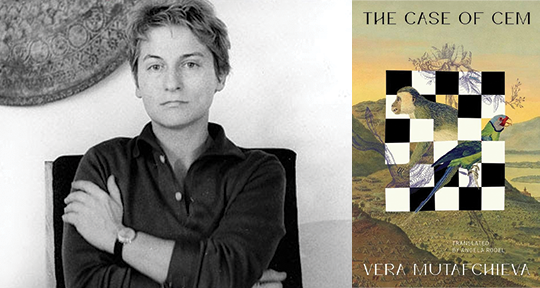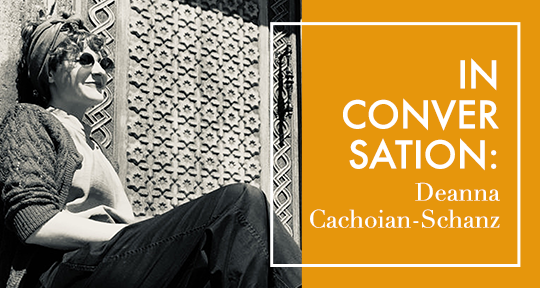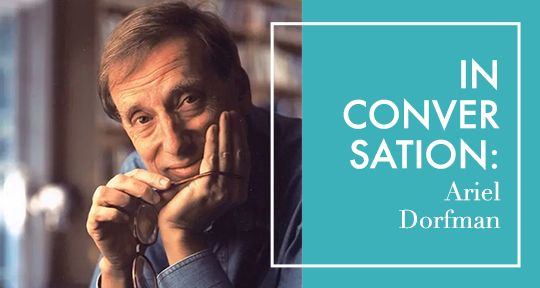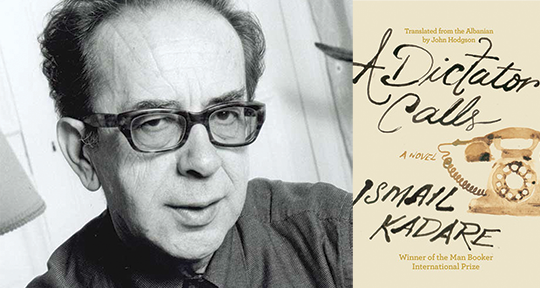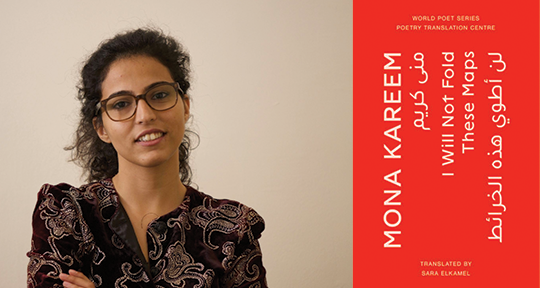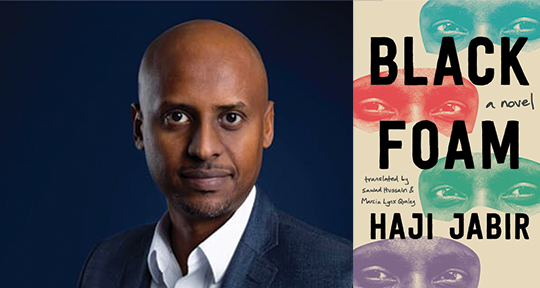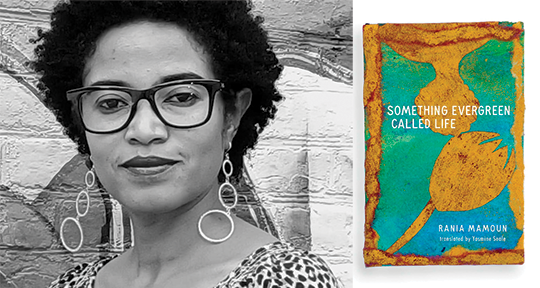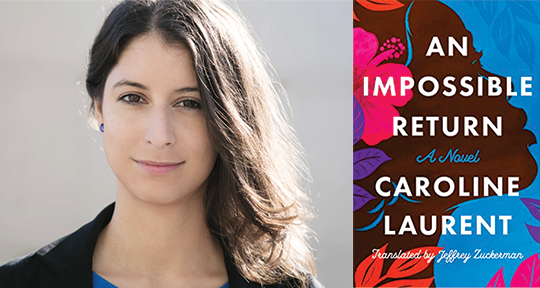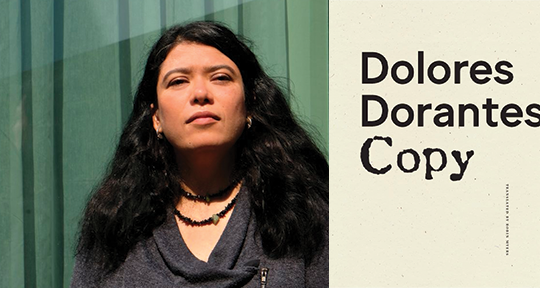My encounter with the poetry of Palestinian writer-translator Najwa Juma was made possible by my writer-friend, Asymptote contributor Stefani J Alvarez-Brüggmann—both Najwa and Stefani are alumnae writers-in-residence at the Akademie Schloss Solitude, an artists’ fellowship at Stuttgart in southwest Germany. For the esteemed and ever-relevant Arab magazine Mizna, Najwa meditates, “There is no salvation but to return / to ask the grandparents chanting / songs of farewell.” Earth, or I daresay a stand-in for the act of coming back to a liberated homeland, malignantly, “is an object of desire and longing in Palestinian poetry,” reflects Sarah Irving in Post-Millennial Palestine: Literature, Memory, Resistance (Liverpool University Press, 2021).
Born three decades after the Nakba in the Gaza Strip, the largest open-air prison in the world according to HumanRightsWatch.org, Najwa is a poet, essayist, fictionist, playwright, translator, and educator whose body of work as an artist-activist chronicle the struggles of the Palestinian woman under settler-colonial occupation, ethnic cleansing, and genocide. In the words of Mizna editor George Abraham, Najwa’s poetry arrives “at an impossible music … embody[ing] a resistive spirit of a people who refuse, with the whole of our bodies and voices, to die.”
As of press time, Najwa’s fate is hinged on the disquiet: she is an asylum-seeker in Germany while her family is still in genocide-ravaged Gaza, wishing for a reunification—which you can support via GoFundMe.
In this interview, I spoke with Najwa—confined in a refugee camp in Germany and shivering from the cold of a Covid-19 infection—on the poetry of occupation and exile written from Israeli-occupied Palestine and what it means to write during a time of ethnic cleansing and genocide.
This interviewer, following Rasha Abdulhadi and Fargo Nissim Tbakhi’s call to hijack literary spaces, would like to express unconditional support for Palestinian liberation and call on readers of this interview to “get in the way of the death machine”, wherever and whoever you are. For starters, consider donating an e-sim, fasting for Gaza, sharing and translating the words of Gazan writers, and reading and distributing this chapbook of Palestinian poets.
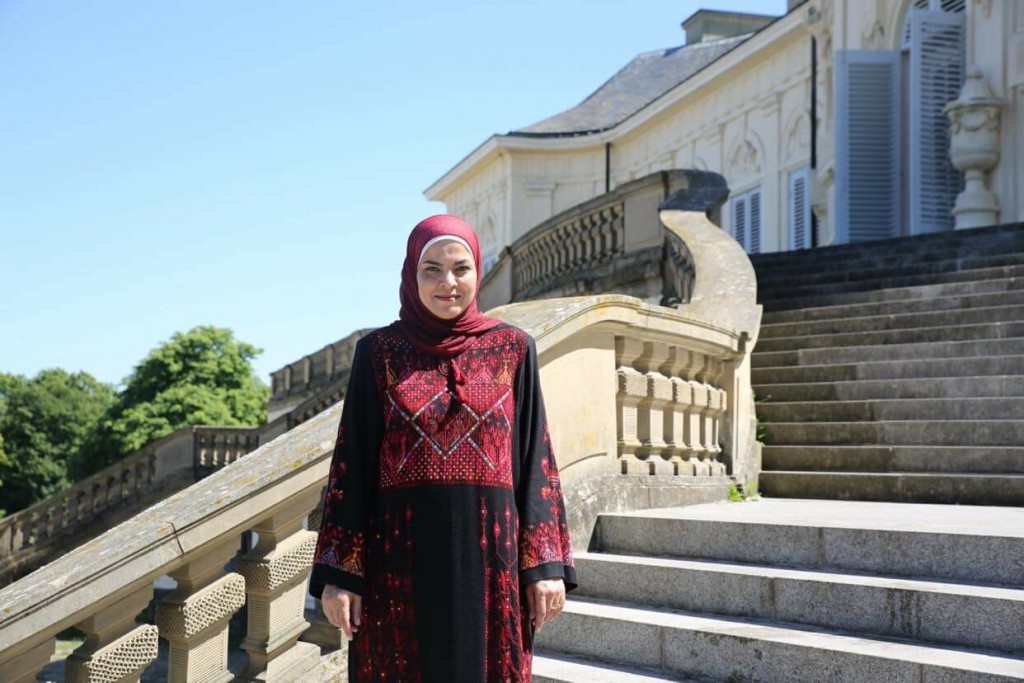
Alton Melvar M Dapanas (AMMD): Genocide and ethnic cleansing have been ongoing lived realities in your occupied homeland. The UN Office for the Coordination of Humanitarian Affairs estimates that over 30,000 Palestinians have been killed by the Israeli Defense Forces since October 7th this year—not including the death toll from 2008 to 2020 alone accounting to more than 120,000 Palestinian lives. Leaders of the so-called Free World are either the very perpetrators or are complicitly silent. Much of the world, the equally powerless, can only do the bare minimum: bear witness and never stop speaking against this carnage as it happens right before our eyes. In these times of the unspeakable, what is the role of poetry and what is the task of the poet?
Najwa Juma (NJ): I always loved poetry that expresses emotions, shares ideas, and creates imagery, but at the time I started writing poetry, as a refugee in my own country facing the occupation from childhood, I found myself writing to resist, to make voice for the voiceless, and to feel free under all the restrictions surrounding me. For example my first poem was about a dead Palestinian person who happened to be buried on top of a hill looking at the Gaza sea in an area only Israeli settlers can reach. The poem expressed the fear that this person feel whenever he hears them speaking in Hebrew right next to him.
Whose voices these are I think I know
Strange and fearful sounds though
I miss my mother’s hands and tears
Sitting at my grave vanishing my fears
Throughout my life I have chosen unarticulated feelings and scenes to write about. I think that the deeper you think and see, the deeper you feel and write. READ MORE…


